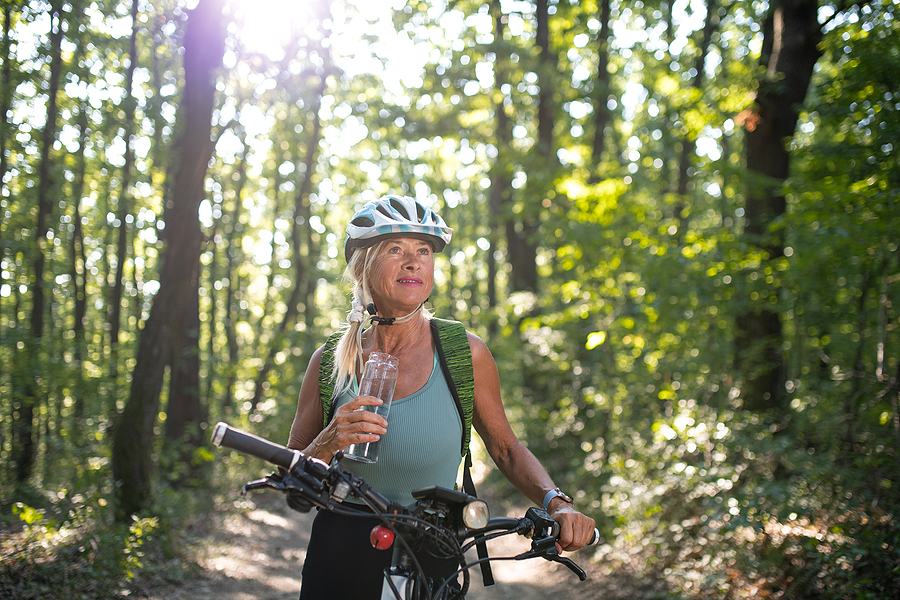Did you know that adults 65 and older are at a greater risk for heat-related health problems than younger adults? As we age, our bodies lose some of the natural ability to regulate temperature, making it more difficult to respond to extreme temperatures. The risk intensifies when seniors have a chronic medical condition or take certain prescription medications that affect the body’s normal response to heat. For this reason, it is very important that seniors understand the dangers of excessive heat and what they can do to minimize serious heat-related health issues this summer.
This summer, consider the following tips for keeping yourself cool and safe when the temperatures rise.
- Stay well hydrated and drink plenty of water throughout the day. Don’t wait until you feel thirsty to begin hydrating. As you increase your water intake, minimize your consumption of caffeinated or alcoholic drinks, as these only dehydrate your body.
- Stay indoors where it is air-conditioned during times of extreme heat. If you must go outside, limit your outdoor activities to the morning and evening times when the sun is less intense. At The Reserve, there are numerous planned activities you can enjoy indoors with neighbors and friends, such as book club, poker or a community breakfast outing to a local Geneva restaurant.
- Reduce strenuous activities. During summer months, limit the amount of physical activity you do outside, as the more you move, the more your body temperature rises. This may include gardening, mowing, walking or playing pickle ball. Ask friends for help if you have outdoor chores, or simply reserve your time doing strenuous activities for the mornings and evening when temperatures are typically the coolest.
- Take cool showers or baths to cool down your body. Better yet, if you have access to a pool, swimming is a great way to stay active and cool during the hot summer months.
- Wear loose, lightweight and light-colored clothing during the summer months to stay cool and comfortable.
- Protect yourself in the sun by wearing sunglasses, hats and sunscreen. This will keep you from overheating and protect your skin from sunburn. When possible, stay in shaded areas, like shady trees and covered patios for added protection from the sun.
Know the Signs of Heat Stress
It’s important to recognize when hot weather is making you or a loved one feel unwell, and when to get help. Dehydration, heat exhaustion and heat stroke can all occur when your body is under too much stress from overheating.
Common signs that you or a loved one may be feeling the effects of rising temperatures include:
- Extremely high body temperature (above 103°F)
- Excessive sweating and pale, clammy skin
- Fast, strong pulse
- Throbbing headache
- Dizziness
- Nausea or vomiting
- Confusion
- Fainting or unconsciousness
- Fatigue and lack of energy
- Muscle cramps
Always seek immediate medical attention if you or someone you know is experiencing signs of heat stress.
Bottom line: As you enjoy the warmer weather and spend more time outdoors, there are some simple precautions you can take to make sure you stay safe and healthy as the temperatures climb.



